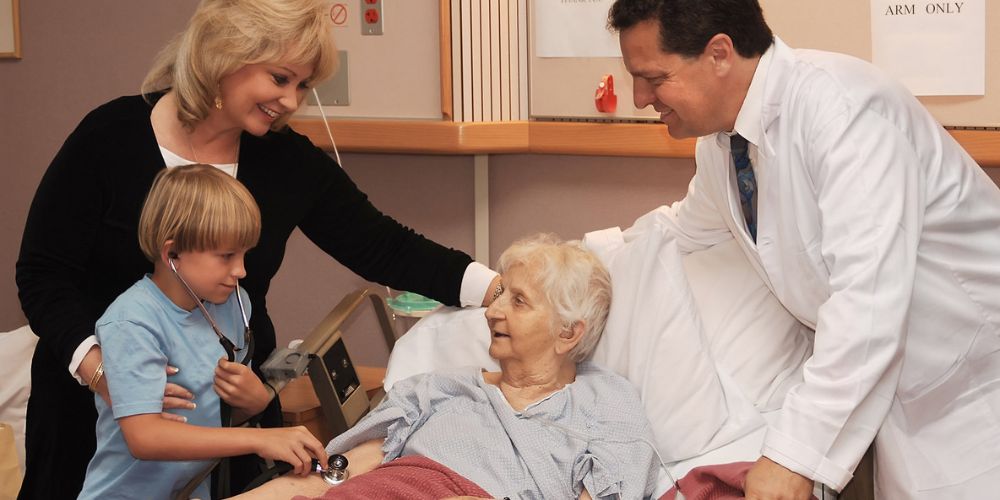Hospice is a specialized care program for individuals with six or fewer months to live because of a terminal disease. However, some programs provide long-term care to patients in their homes, nursing homes, assisted living facilities, hospitals, or hospice houses if needed.
Introduction to Hospice Care and Family Support
Family presence in end-of-life care has several benefits, and hospice care is a humane instance dedicated to improving the quality of life of terminal patients. It is not an easy process; however, family involvement is irreplaceable in most cases despite the central role of qualified medical personnel. The support of spouses, children, and sometimes even parents enables people to endure such times.
The Role of Family Involvement in Hospice Settings
The idea of being admitted to hospice is nerve-wracking for the family but for the patient as well. Giving up a lifetime of freedom is no joke; being utterly dependent on others and accepting the inevitable is not always easy on people, especially independent ones. Family members can support those admitted to hospice centers by:
Advocating For Their Loved One
As part of the patient’s team, families should speak on behalf of their loved ones and ensure their wishes and needs are passed on to the healthcare team. This may require discussions on the available treatment options, pain management, or end-of-life decisions.
Create a Supportive Environment

One way to ensure a welcoming and hospitable environment in hospice is to involve family members. Their visit could bring the patient a sense of serene peace and ensure the loved one’s end-of-life process is as comfortable as possible.
Providing Emotional Support
A family often becomes a patient’s primary emotional and mental support system. The emotions that accompany a severe disorder diagnosis might weigh heavily on an individual, and the family needs to provide comfort and encouragement and just be their loved one’s peer.
Arranging Visits (Virtual or In-Person)
Whether through physical stays or virtual technology, the family member ensures that the patient is not alone and can share memories and joy with the loved one.
Provide Education and Resources
The last way that the family is involved in the patient’s care is by providing comprehensive information and caring tips to help their loved ones with the loss and palliative procedures.
Strategies for Enhancing Family Support in Hospice Centers
Hospice care teams consist of various professionals like doctors, nurses, social workers, and pharmacists. They work together to care for patients, providing emotional, spiritual, and physical support. Some strategies to enhance family support in hospice centers are:
Provide Counseling Services

Hospice centers can also provide counseling services to help families cope with the emotional burden of end-of-life care. Families are offered a safe space to vent, heal, and seek advice from trained professionals in counseling services.
Facilitate Family Meetings
Regular family meetings are aligned with better outcomes, as open communication and collaboration are critical to the success of hospice services. Regular meetings enable the family to collaborate with healthcare providers by discussing caregiving plans and any concerns, ensuring that everyone is on the same channel as the patient.
Encourage Self-Care
Providing care for a loved one in hospice is taxing – physically, emotionally, financially, and mentally. Hospice centers can help family members focus on self-care by offering respite care, support groups, and resources to avoid burnout and improve their health.
Conclusion
Family involvement is critical to the success of hospice care for loved ones. Family members play a crucial role as they advocate for the well-being of the patients and provide emotional support and physical care. Organizations like Abundant Hospice Care value the invaluable contribution of family members in hospice care settings, and are committed to providing home care services that assist patients and their families while ensuring their needs are well-catered for.







